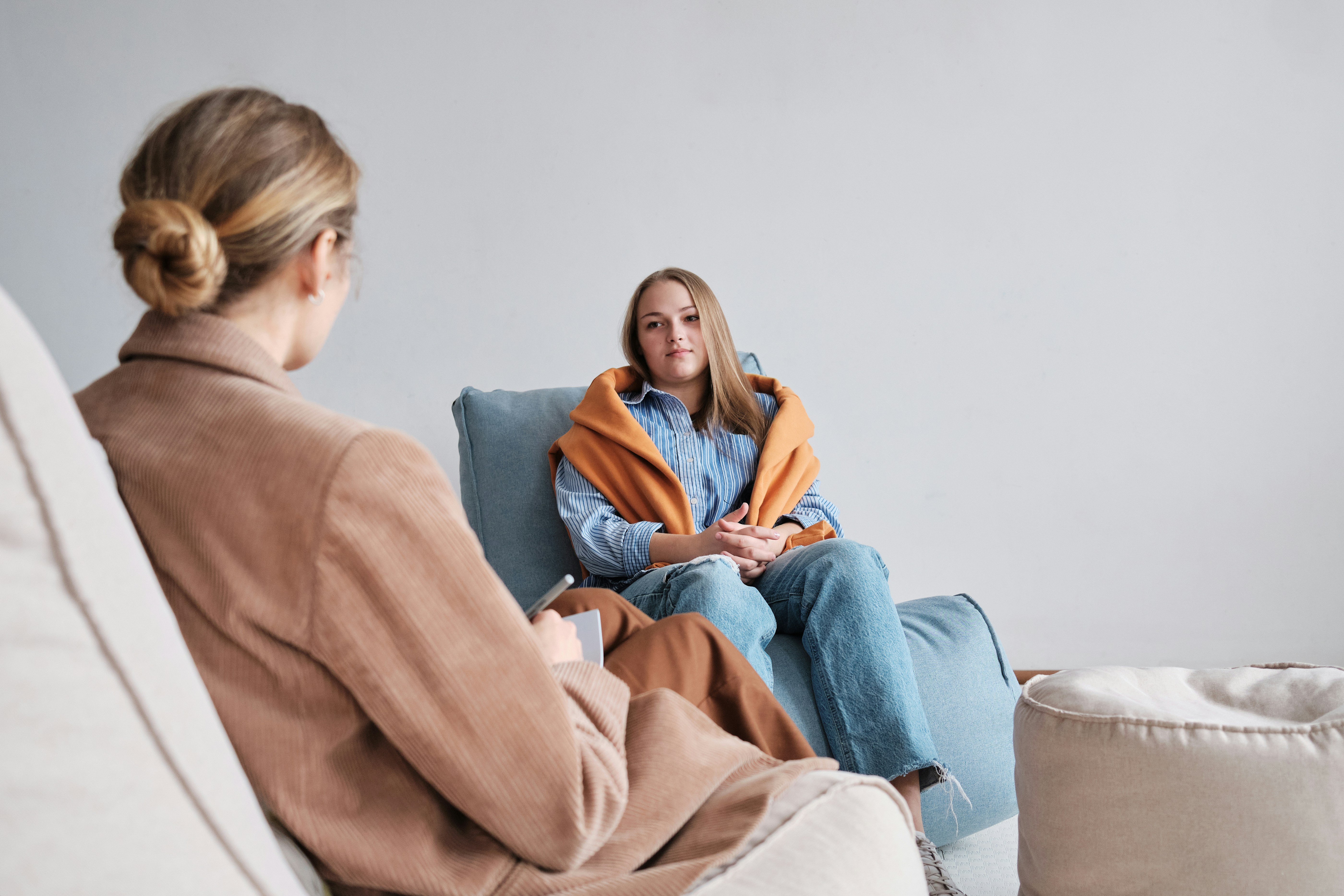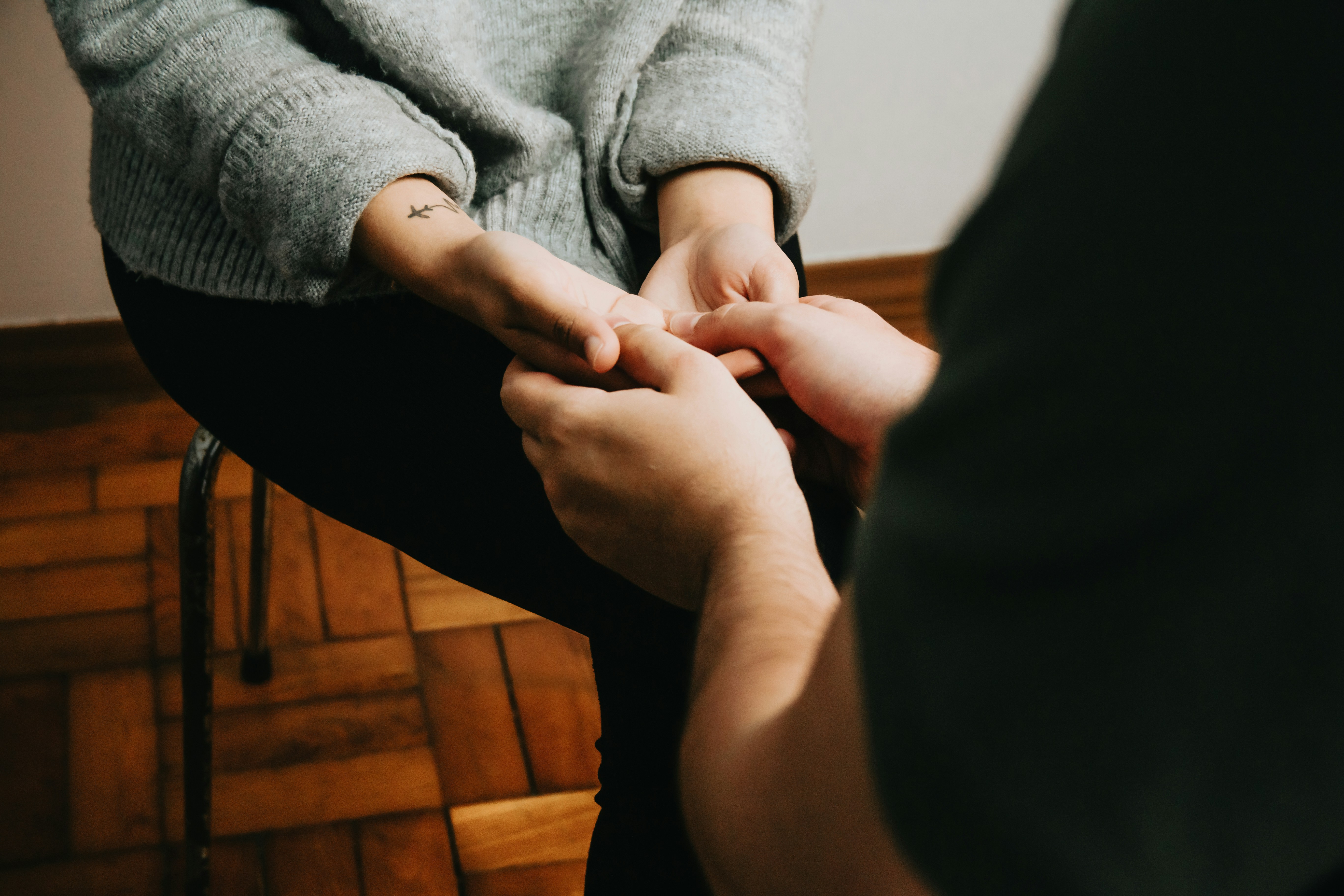
We know that anxiety isn’t always easy to manage. If your symptoms are causing you a lot of distress, it’s understandable that you’d search for relief that’s both easy and fast.
Professional mental health care is the most effective way to treat anxiety, and it’s the only kind of treatment that we know really works. Anti-anxiety medications are only available through a prescription, so we recommend making an immediate appointment with a qualified provider to properly address your symptoms.
Although anti-anxiety medications cannot be purchased over-the-counter, there are some remedies and supplements available that may help you cope with your anxiety. While there is only limited evidence that they serve as effective treatments, they are generally unharmful when used as recommended. However, you should keep in mind that these treatments are not regulated by the FDA; and it is strongly advised that you consult your doctor before beginning any new supplements, in case they interact with any other medications.
Since there are so many different products to choose from, we thought we’d break down the 10 most common anti-anxiety remedies available over-the-counter. But remember, the real results come from therapy and prescription medication – and you can make an appointment just as fast as you can buy a supplement.
5-HTP
Also known as tryptophan, 5-HTP is a compound found in the body. It is a naturally occurring amino acid that plays a role in creating and modulating serotonin levels.
5-HTP is available over-the-counter as a dietary supplement. It is believed that taking the supplement could be beneficial for anxiety, because it helps the body increase serotonin just like SSRIs do.
One study showed that 5-HTP had a moderate impact in alleviating mental health symptoms, but there is not a large body of evidence proving that it makes an effective treatment for anxiety.
Taking 5-HTP in combination with some other medications could cause negative interactions. Do not take the supplement if you are taking antidepressants, stimulants, sedatives, muscle-relaxers, or anti-anxiety medications. Check with your doctor before trying 5-HTP in case it poses any additional risks to you.
Magnesium
Magnesium is a mineral and nutrient that the body needs to be healthy. It is a key component of many important bodily functions; including helping to maintain heart and brain function, regulating muscle and nerve function, supporting the immune system, and regulating blood pressure.
Magnesium is found naturally in many foods; including legumes, nuts, leafy greens, whole grains, seeds, and dairy products. However, nearly half of the US population does not get enough. That’s why many people add an over-the-counter magnesium supplement to their diet.
Low levels of magnesium may correlate to an increase in anxiety, due to the role it plays in the adrenal axis (a part of your body’s stress response system). It is possible that taking a magnesium supplement will help you feel less anxious, especially when used in combination with other treatments. Just be sure not to take more than 350 mg, because high doses can cause side effects.
Kava
Kava is a plant that is available over-the-counter as a dietary supplement. It is thought to have sedating properties, and can induce feelings of calm.
There is some clinical research to support that kava could be an effective treatment for anxiety symptoms. One study did find that it was helpful for people with Generalized Anxiety Disorder. Other studies found it to be equally as helpful as anti-anxiety medications, and more helpful than a placebo.
However, experts say that taking kava comes with significant risk of dangerous liver damage. Therefore, you should not take kava unless you are under a doctor’s supervision.
Ashwagandha
Ashwagandha comes from a plant that has been used for centuries in traditional Indian medicine. It is sold over-the-counter as a dietary supplement.
Ashwagandha is thought to lower stress by impacting the body’s cortisol levels. A study did show that taking the supplement did affect the levels of several hormones related to stress and anxiety. However, there is not enough high-quality research to conclude that this is a sufficient treatment for anxiety disorders.
Do not take ashwagandha for more than 3 months. It is not recommended for people with autoimmune disorders, or for people taking other medications. Always tell your doctor if you’ve started or are considering taking any new supplements.
Valerian root
Valerian is an herb that has been used in traditional medicine since ancient times. It’s primarily used to treat insomnia. Valerian is naturally derived and can be purchased over-the-counter without a doctor’s prescription.
One study did find that taking valerian could be helpful in relieving anxiety. However, there is not sufficient evidence to conclude that it is truly helpful.
Valerian is thought to be generally safe when taken as a sleep aid in the short-term. Because of its sedating effects, you should not drive or drink alcohol while taking it; and should avoid combining it with any other medications.
Holy basil
Holy basil (tulsi), like ashwagandha, is another herb used in ayurvedic medicine. Holy basil extract is available over-the-counter in the form of capsules. It has been widely used in traditional medicine to treat a variety of chronic conditions.
Herbal medicine advocates say that holy basil is an “adaptogen”, which is a term for food and supplements that can help the body reduce stress-response chemicals. There is some limited clinical evidence showing that taking the supplement can reduce psychological stress.
Taking holy basil seems to be safe for most people when taken for up to 8 weeks. But it can have some side effects, such as nausea or diarrhea; and it could be dangerous when combined with any drugs that slow down blood clotting. Check with your doctor to see if there’s any reason why you should avoid taking holy basil as a supplement.
Omega 3
Omega-3 fatty acids can be obtained through diet and are considered essential to good health. They are naturally occurring in foods such as walnuts, flaxseeds, and fatty fish.
Taking an omega-3 supplement is common and considered to be safe with few to no side effects. However, most experts believe it’s more beneficial when omega-3 comes directly from the food you eat.
There is some evidence that omega-3 can improve mood and mental health conditions. Either way, they are good for your health and taking a supplement can’t hurt; but there’s not enough research to make a definitive recommendation for omega-3 as an anxiety treatment.
L-theanine
L-theanine is an amino acid that is sold over the counter as a dietary supplement. It was initially discovered as a component of green tea, and is also widely available in pill and powder form. The FDA considers L-theanine to be GRAS (Generally Recognized As Safe) in doses up to 250 mg.
L-theanine is believed to have mild sedating properties, and therefore could improve mental health by promoting relaxation and reducing feelings of stress. Some research has shown that it is effective in treating anxiety symptoms, but there is not enough evidence that it is significantly helpful.
Lavender
Lavender is a very common flowering plant, with a scent that is widely understood to promote feelings of relaxation and calm. It is available as an oral supplement, in addition to being found in teas and used in aromatherapy.
Lavender has been used for centuries in herbal medicine, and it is considered safe to consume in moderate amounts. Some small clinical studies have shown that it can improve symptoms in mild anxiety disorders, but there is very little scientific evidence to assert this claim.
Chamomile
Chamomile is a plant that is often used as an ingredient in food and beverages. It can be taken as a supplement in pill form, but is more frequently consumed as an herbal tea. Chamomile was used as an ingredient in ancient medicine, and is commonly known for having calming properties.
Some preliminary research has found chamomile to improve symptoms in Generalized Anxiety Disorder, but more high-quality research is needed to prove its impact. It is considered safe to consume, but use caution when consuming alongside aspirin or other anti-inflammatory drugs.
Key takeaways
Technically, there are no anti-anxiety medications available over-the-counter. Medications that impact the brain must be taken with extreme care, which is why they are only available as a prescription and under the supervision of a qualified health provider.
There are a number of herbal products and supplements that are believed to help ease symptoms of anxiety. However, many of them have very limited research to back those claims; and supplements are not approved by the FDA to treat medical conditions. More evidence is needed before anyone can recommend a true over-the-counter treatment for anxiety. Some of the supplements might still help you cope with your anxiety symptoms; and they are generally safe to take as long as you follow the directions and exercise caution.
For a more reliable treatment, turn to prescription medications and therapy. And if you’re looking for immediate support, urgent care psychiatry is available to help.
Sources
The Effects of Magnesium Supplementation on Subjective Anxiety and Stress—A Systematic Review - PMC
The Clinical Efficacy and Safety of Tulsi in Humans: A Systematic Review of the Literature - PMC
Adaptogens - Special Subjects - Merck Manuals Consumer Version
Holy Basil - Special Subjects - Merck Manuals Consumer Version
Omega-3 Supplements: In Depth | NCCIH
Omega-3 fatty acids for mood disorders - Harvard Health
Essential oil of lavender in anxiety disorders: Ready for prime time? - PMC






